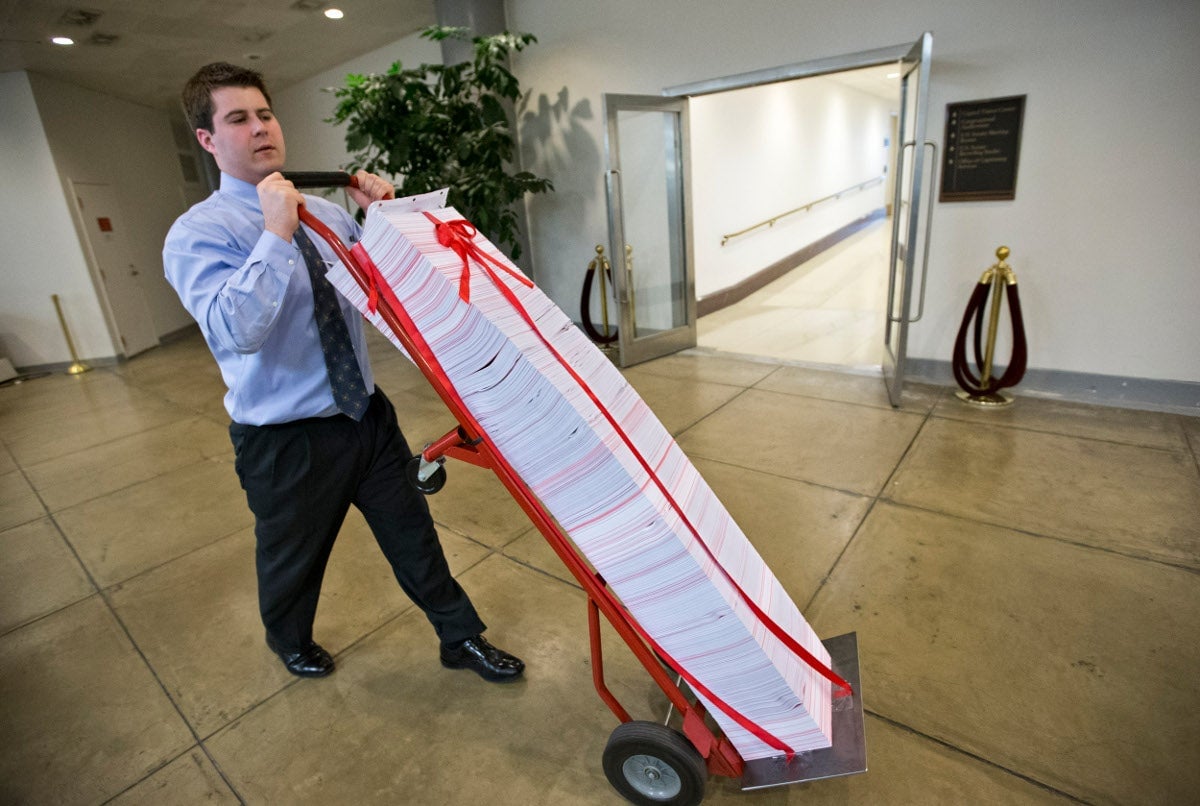The Obamacare delay won’t hurt health-care access but will make business happy
The Obama administration today gave big businesses an extra year to comply with the new mandate to offer health care to their employees. It’s not a big deal for health care, but it could be a big deal for health reform.

The Obama administration today gave big businesses an extra year to comply with the new mandate to offer health care to their employees. It’s not a big deal for health care, but it could be a big deal for health reform.
The new health care law requires all employers with more than 50 employees to provide them with health coverage, and fines them $2000 a year if they don’t. Those rules were supposed to take effect in 2014, but actually implementing them has turned out to be trickier than expected, so the Treasury announced it was delaying reporting requirements—and the fines—until 2015.
For employees at the companies in question, it probably won’t make a huge difference. In 2011, some 95.7% of companies affected by the new law already provided health insurance to their employees; other sources put that figure as high as 99.8%. Companies planning to start providing insurance in 2014 probably won’t stop just because they know the requirement will be delayed a year, but they’ll be happy they have more time to plan for compliance with the government.
Business will also get a one-year reprieve on the penalty for not offering cheap enough health insurance, defined as less than 9.5% of the employee’s income. That could leave some employees paying more than they should be under the new law.
Opponents of the new health care rules will certainly use the opportunity to point out the complexity and difficulty of enforcing the new rules. Some of the objections from these quarters included expectations that companies will fire workers to get under the 50 employee floor, so you can expect the administration will try to find a way to answer those concerns in the rules it develops. But, just as with the Dodd-Frank financial regulation reform, you can expect other rule-making delays as health care reform gets off the ground. It’s not even the first major delay.
In this case, though, the effect on actually getting people insurance will be minimal. The bigger challenge there is setting up health insurance exchanges that provide a market and subsidies for individual buyers.